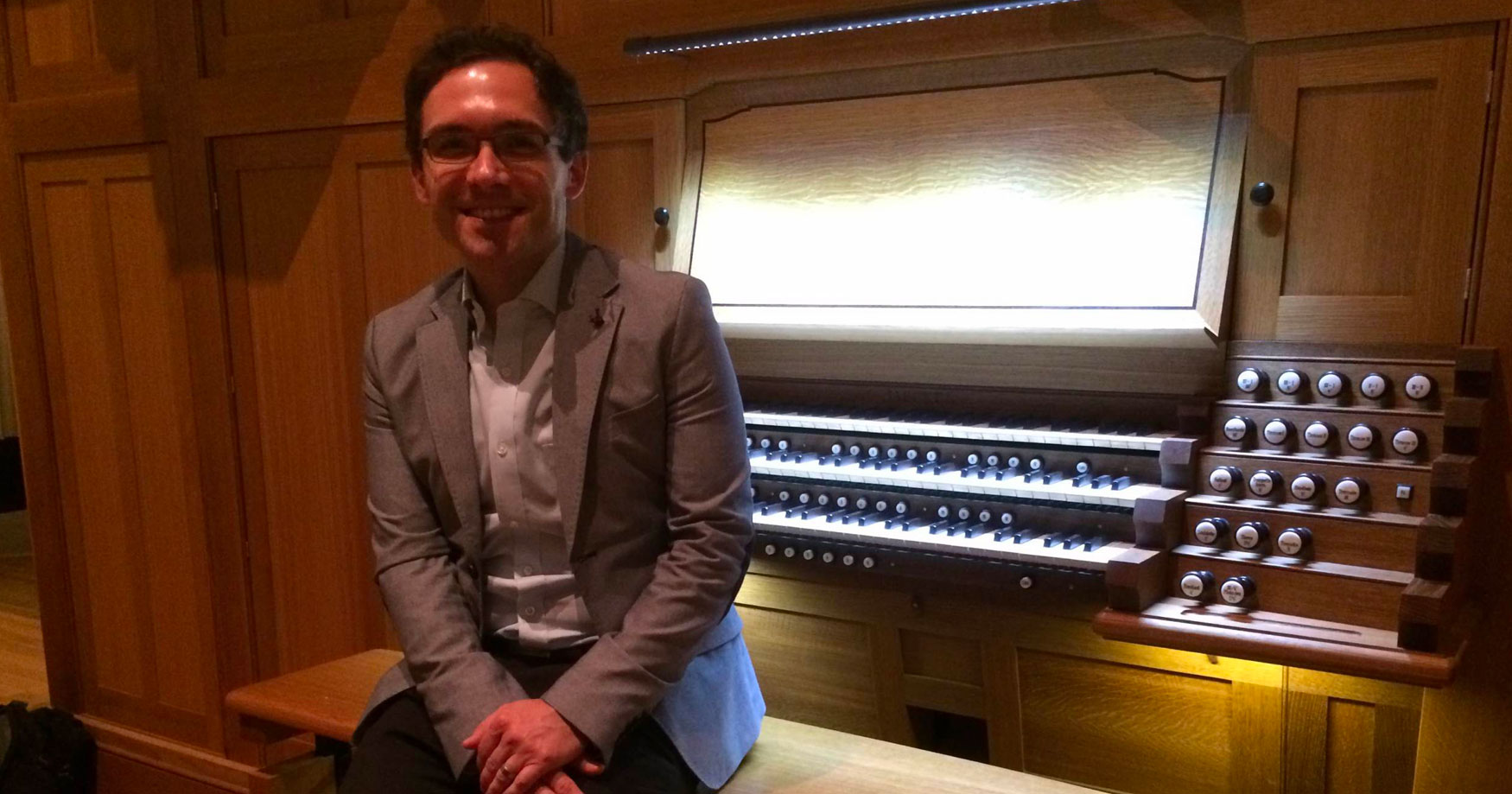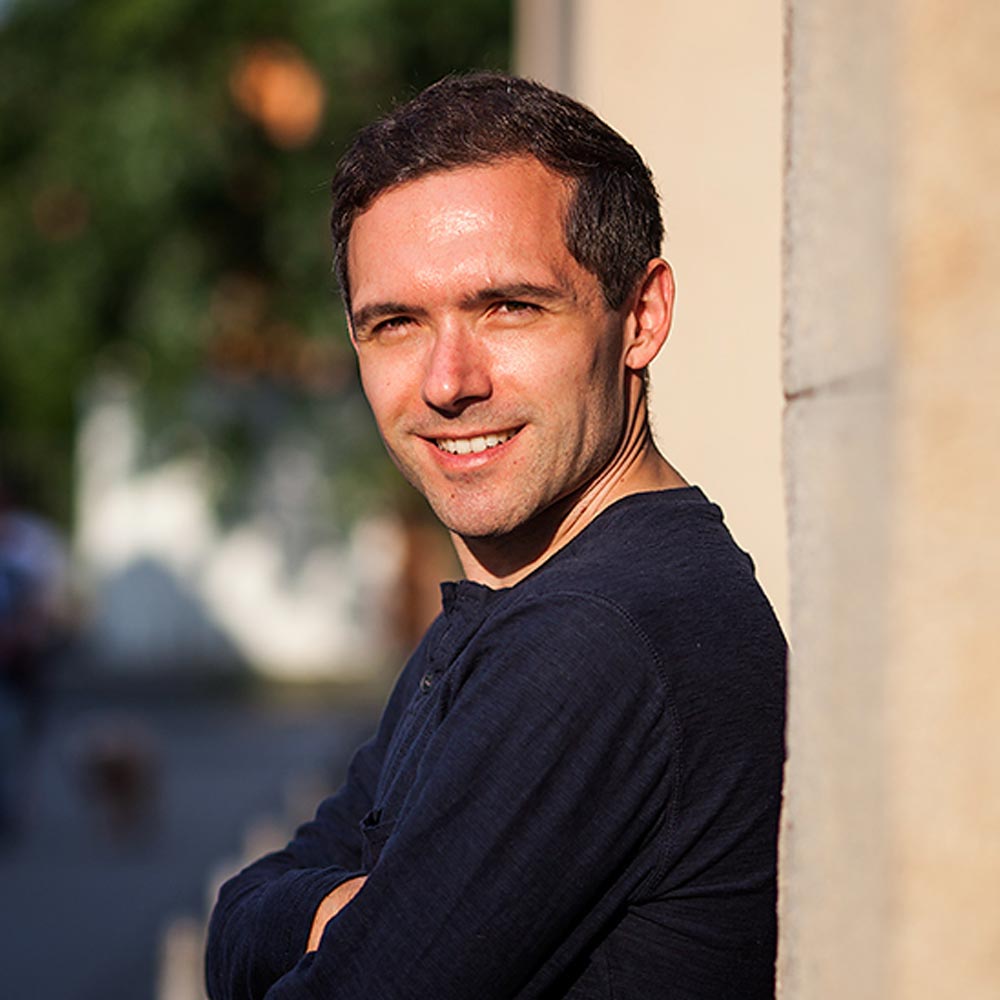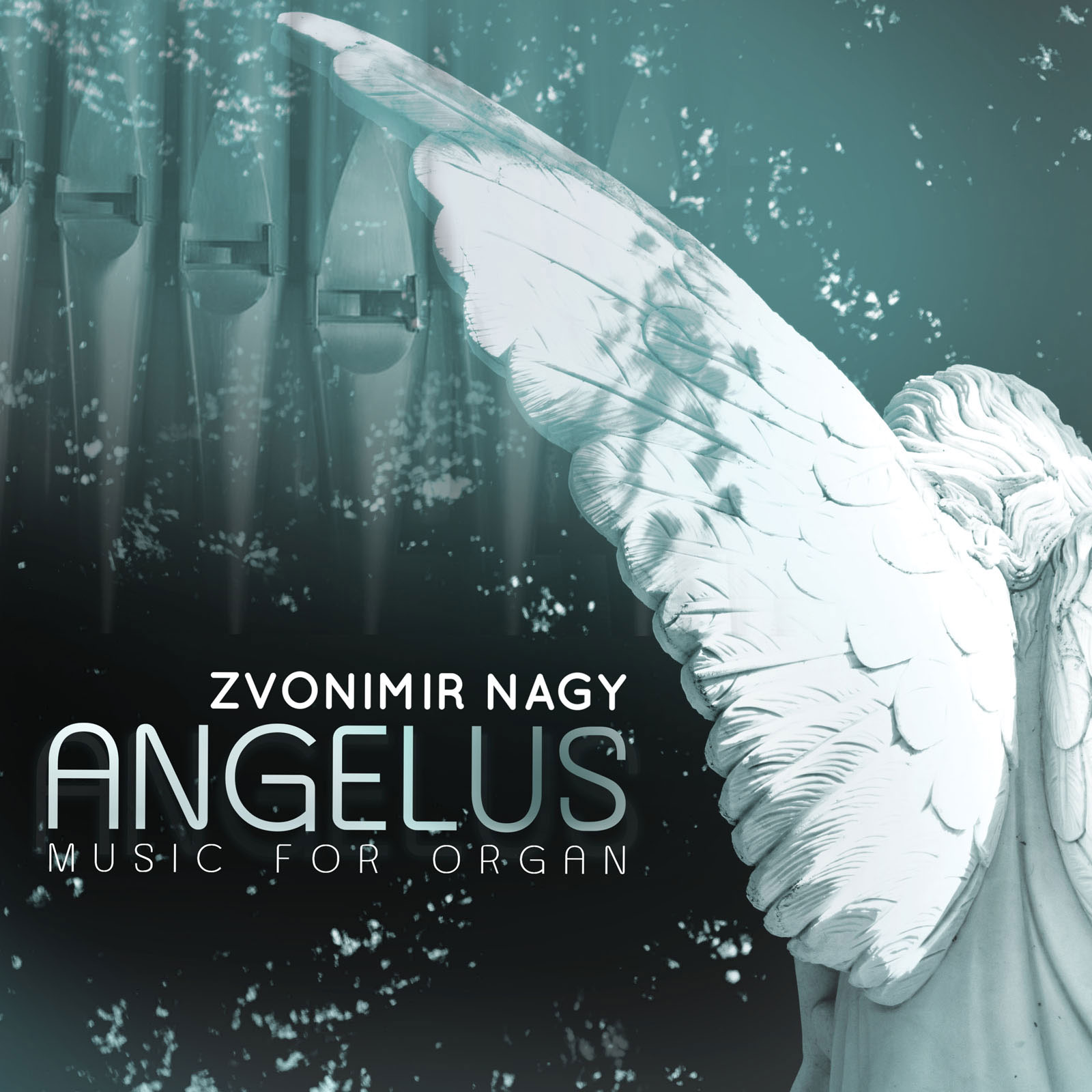
Zvonimir Nagy’s newest release ANGELUS is a singular journey into a meditative state. Like the commemoration of annunciation, Nagy’s album features music for thoughtful contemplation, using solo organ to create delicate space for inner exploration throughout the life of the album.
Today, Zvonimir is our next featured artist in “The Inside Story,” a blog series exploring the inner workings and personalities of our artists. Read on to learn about his culinary passions…
When did you realize that you wanted to be an artist/composer/creator?
I knew that I wanted to play and compose music for organ when I first heard one of the nuns at my local church in Croatia playing the organ. It was a mind blowing and life changing experience, possibly one of the most formative events of my childhood. As soon as I was able to get my hands on a keyboard, I pushed myself to learn more and more advanced music.
I remember one of my first organ teachers, a nun at the local cathedral, who wouldn’t let me borrow her score of the infamous Bach’s Toccata and Fugue, considering it to be too difficult for me to play. But I pestered her constantly and practiced non-stop to earn permission to play that piece! I’ve pretty much been on the same eager and relentless pace of learning and composing music since then.
What was your most unusual performance?
A somewhat unusual performance, and a bit embarrassing I must say, took place during my doctoral studies at Northwestern University. It happened at the concert of student composers, for which I was to perform a prepared organ improvisation. I remember meticulously preparing a series of detailed musical sketches for my 8 minute improvisational journey. And yet, my improvisation ended up lasting at least 20 minutes! I completely lost track of time! I was mortified and flabbergasted at the notion of facing my classmates and teachers, but it all turned out for the best, resulting in a good lesson on the understanding and control of musical time during improvisation.
What is your guilty pleasure?
I love to cook. I find it incredibly relaxing, especially after a long day at work. I particularly enjoy using my creativity in the kitchen, improvising recipes from limited ingredients or customizing ones from my favorite chefs.
If you were to look at my library lending history you’d find (besides tons of books about music) a regular rotation of all the latest cookbooks. I’m always trying something new. There was a time recently when I was making a new cake recipe every week, as chosen by my wife or kids. However, turns out there really is a limit to how much cake you can feed a 3 and 5 year old so I’ve tapered off the baking a bit. Now, I’m trying to work my way through making 365 different salsas instead!
Was there a piece on your album that you found more difficult to compose/perform than the others?
The first track on the album, entitled Angelus, which remains the most recent piece on the album, completed in Summer 2017. The most challenging aspect of composing the piece was to reconcile some very simple musical material with much more complex musical structures and formal design. In other words, I wanted to compose a piece that unfolds itself as a sound ritual, inviting the listener to enter a simple and contemplative sound world, in which more complex details and relationships begin to emerge the more one listens to and engages with the music. On a more personal note, the emotional experience of composing and performing the piece was significantly influenced by the recent passing of a dear friend from Pittsburgh, Nancy Thomas, who remained an encouraging supporter of my organ playing.
What does this album mean to you personally?
This album is a milestone in my work as a composer, featuring for the first time the recordings of my solo organ compositions. In addition to a few early pieces, the album mainly consists of more recent compositions, thus providing an overview of my current compositional style. I was also glad to perform my composition on my own, and on the new organ at Duquesne University, something that made the experience of creating and recording the music even more special! I’m also so grateful to the Heinz Endowments of Pittsburgh for supporting the production of this album.
Is there a specific feeling you want listeners to tune into when hearing your work?
A significant part of my work as a composer is concerned with music cognition, especially on the mental processes underlying how we create and perceive musical structures. So perhaps listeners may want to tune into the repetitive, or pattern-based structures as well as my systematic approach to harmony, not so much based on abstract constructs, but based on the visceral properties of musical sound. In this way, the musical experience takes the form of a ritual, during which the act of listening can also be intensified by a sense of becoming or searching, suggesting a more contemplative approach to listening to music. It’s also like being able to decipher a code or find your way in a labyrinth: you listen to a piece of music and it’s like another world, a gateway to another place.

Zvonimir Nagy is a Croatian-born, American composer, performer, and music scholar based in Pittsburgh, Pennsylvania. He earned a Doctor of Music degree in composition from Northwestern University, and also studied music at Texas Christian University and at the Academy of Music in Zagreb, Croatia. He studied composition with Jay Alan Yim, Augusta Read Thomas, Tristan Murail, and Marko Ruždjak, and organ with H. Joseph Butler. His creative and research work extends into interdisciplinary contexts and perspectives on music and embodiment, forging connections between psychology, philosophy, spirituality, and the arts. As organist, he has received the second prize in César Franck/Olivier Messiaen International Organ Comptition in Haarlem, the Netherlands.

